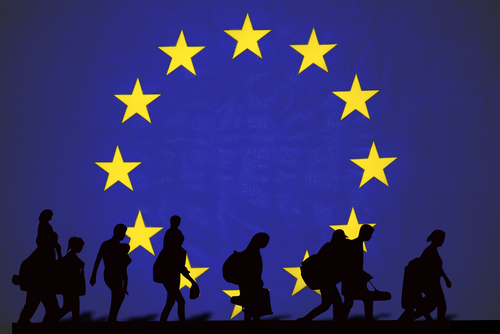Written by Ralf Drachenberg,

The Bratislava summit was an informal meeting of Heads of State or Government of 27 Member States. Although attended by all members of the European Council other than the UK Prime Minister, it was not a meeting of that institution. Another difference from the European Council format was the absence of the European Parliament President, who normally gives an address at the beginning of each meeting.
As agreed at the informal meeting of 27 Heads of State or Government and the Presidents of the European Council and European Commission held on 29 June 2016, EU leaders met to diagnose the present state of the European Union and discuss the EU-27’s common future without the UK. The Bratislava meeting was, in the view of Peter Ludlow, not about the EU and Britain, but about the EU without Britain. The meeting resulted in the ‘Bratislava Declaration’, which spells out the key priorities of the EU – 27 for the next six months and proposes concrete measures to achieve them, the main ones relating to: 1) migration, 2) internal and external security, and 3) economic and social development, including youth. These topics were already outlined in advance by European Council President, Donald Tusk, and generally reflect the issues which most concern European citizens (see Graph 1).
Migration and external borders
EU leaders expressed their aim to bring down the number of irregular migrants, ensure full control of the EU’s external borders, broaden the EU consensus on long-term migration policy and apply the principles of responsibility and solidarity. In this context, the Visegrad countries (the Czech Republic, Hungary, Poland and Slovakia) called for ‘flexible solidarity’, meaning that Member States could decide themselves if and how they would like to contribute to migration policy, based on their experience and potential. A number of Member States also committed immediate assistance to strengthen Bulgaria’s border with Turkey.
Internal and external security
One of the EU’s main objectives in this area is, in the view of Heads of State or Government, to support Member States in ensuring internal security and fighting terrorism. EU leaders also plan to strengthen EU cooperation in the area of external security and defence. A German-French initiative on this issue was discussed inter alia at the informal meeting of EU Defence Ministers on 27 September, as an input to the December European Council discussions on defence.
Economic and social development
On economic and social development, EU leaders aim to create a promising economic future for all, while safeguarding the European way of life, and to provide better opportunities for youth. Many of the specific measures planned in the next six months (see table below) focus on this area.
European Parliament
Robert Fico, Slovak Prime Minister and President-in-office of the Council, who hosted the Bratislava summit, stressed that the European Parliament had been fully involved in its preparation, and thanked the Parliament’s President, Martin Schulz, for its very constructive cooperation. In Mr. Schulz’s view, Member States have to take responsibility for the Union they have created. Similar messages came from many Members of the European Parliament during the State of the Union debate in plenary on 14 September 2016.
On 5 October, the European Parliament will debate the preparation of the 20-21 October European Council meeting. According to Martin Schulz, the European Council President, Donald Tusk, will also inform Parliament of the results of the Bratislava summit.
‘The Bratislava roadmap’
The European Council President, Donald Tusk, stressed that this was only the first summit in a process aimed at discussing the EU’s common future with 27 states, which will culminate in a celebration of the 60th anniversary of the Treaties of Rome in March 2017. He also made it clear that the Bratislava declaration would guide the leaders’ actions during their regular European Council meetings.
Table 1: Timeline of upcoming meetings
| Date | Principal Topic(s) | Action | Actor | ||
| October 2016 | Trade policy | Addressing the benefits of open markets and taking citizens’ concerns into account | European Council | ||
| December 2016 | Security and Defence | Decide on a concrete implementation plan | European Council | ||
| December 2016 | European Fund for Strategic Investment | Decision on extension based on evaluation so far | European Council | ||
| December 2016 | Fighting youth unemployment | Decisions on EU support for Member States | European Council | ||
| January 2017 | General State of the EU | Follow-up | 27 Heads of State or Government | ||
| Spring 2017 | Single Market strategies (including Digital Single Market, Capital Markets Union, Energy Union) | Review progress | European Council | ||
| March 2017 | General State of the EU | Round off the process launched in Bratislava; set out orientations for the EU’s common future | 27 Heads of State or Government | ||
Download this publicaiton on ‘Outcome of the informal meeting of 27 Heads of State or Government on 16 September 2016 in Bratislava‘ in PDF.








[…] Source Article from https://epthinktank.eu/2016/10/03/outcome-of-the-informal-meeting-of-27-heads-of-state-or-government… […]
[…] 2016 Bratislava declaration, setting out the key priorities for the EU with the UK on its way out, and how to achieve them, […]